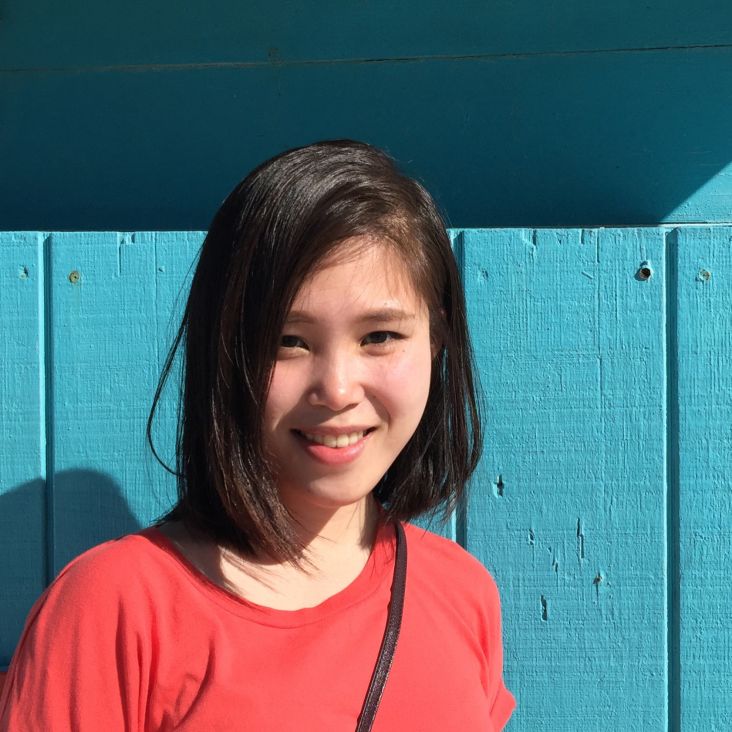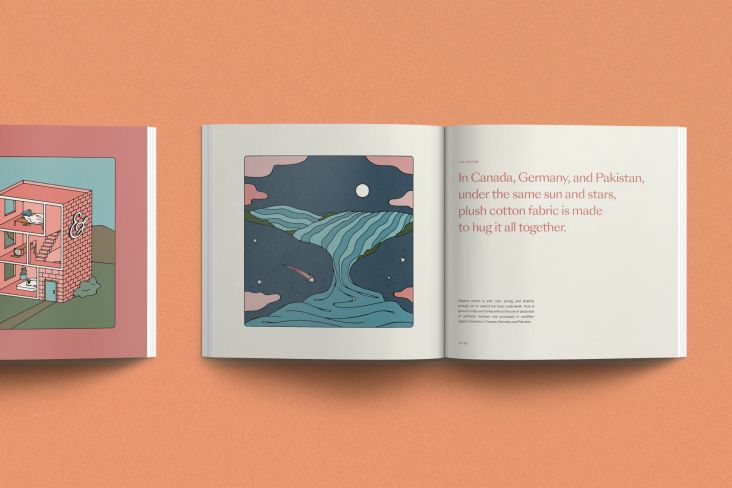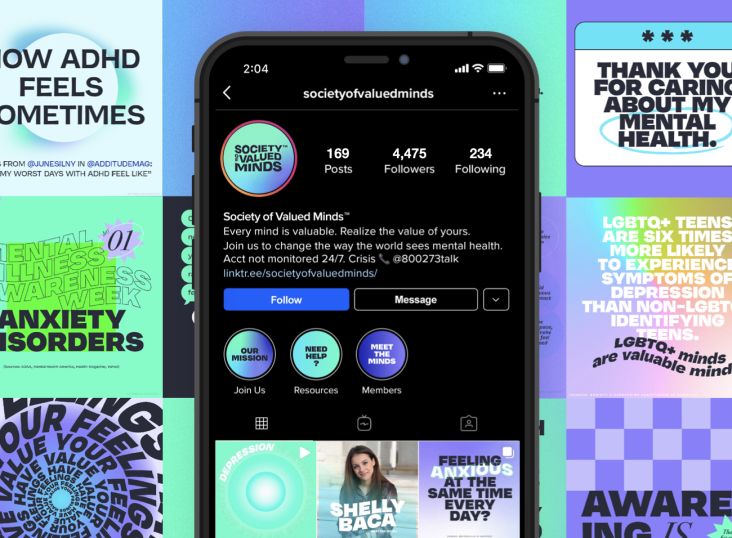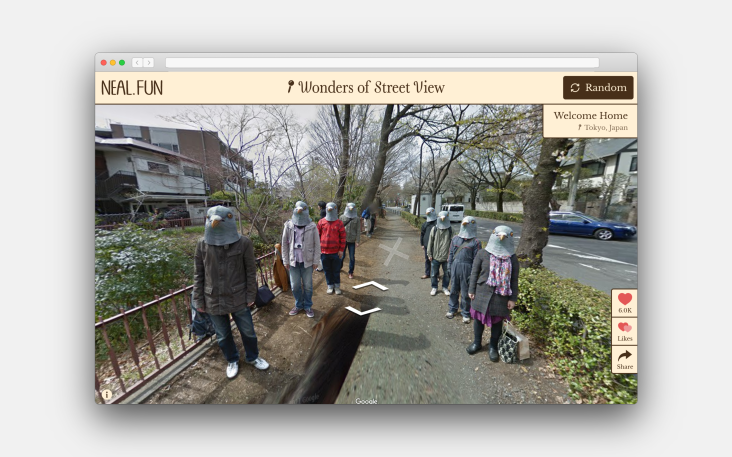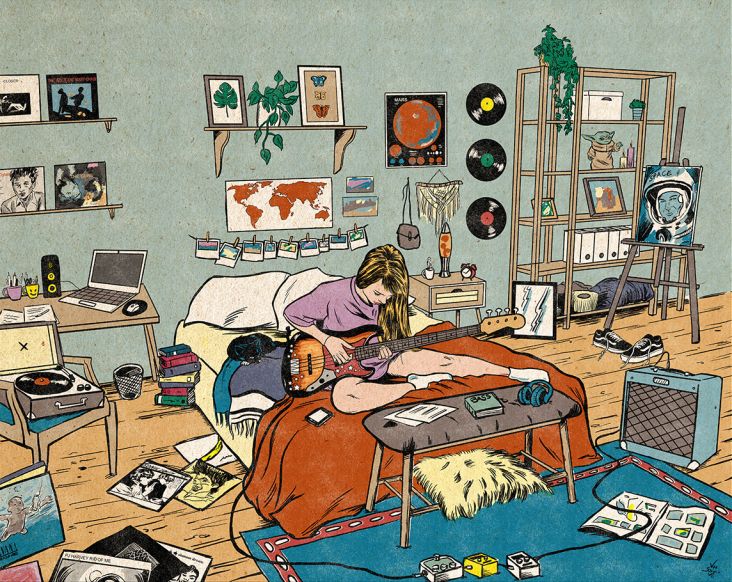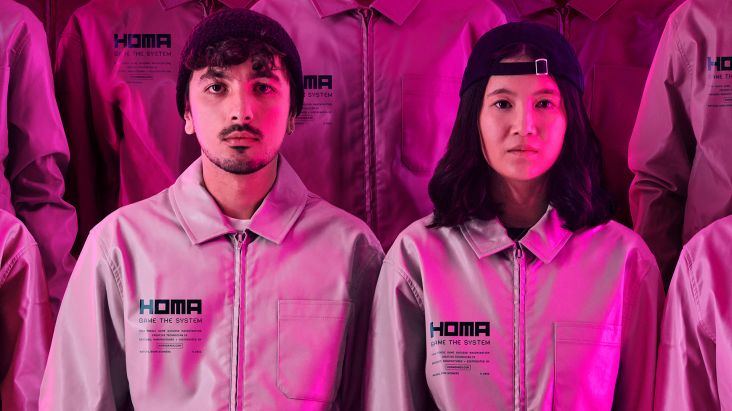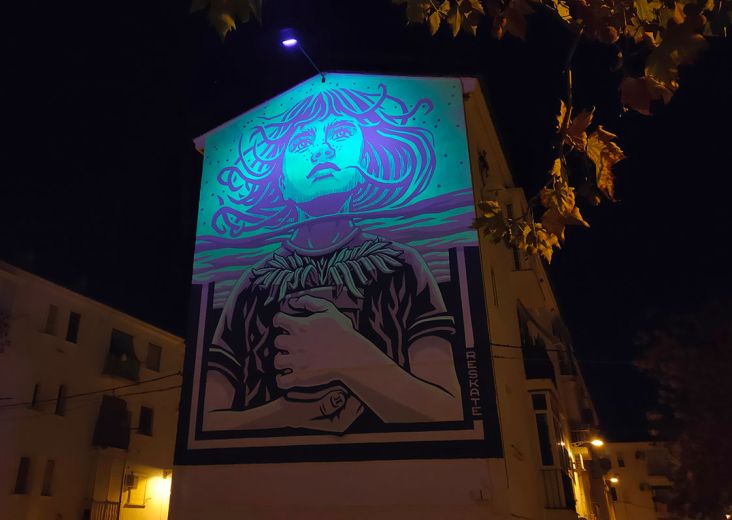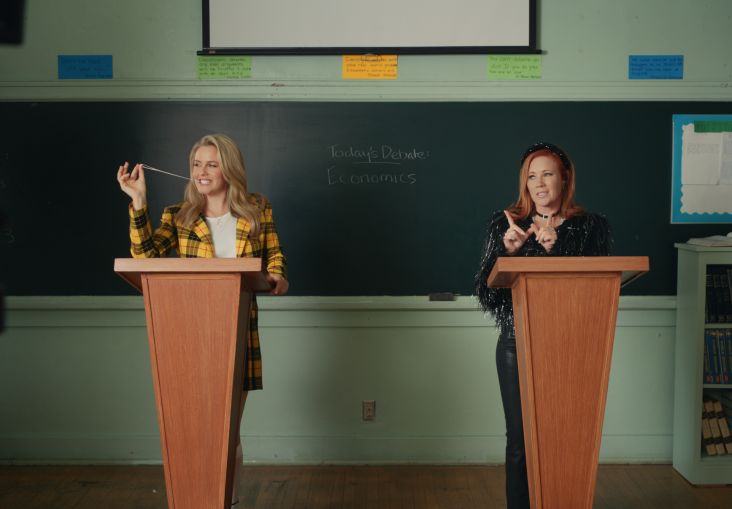Kingsland's tarot-inspired business cards highlight the magic of creativity
New York agency Kingsland wanted to give employees a calling card – but a run-of-the-mill business card wouldn't cut it. Instead, it turned to the archetypes of tarot cards to create personalised cards that don't just tell new contacts where to find an employee but give a deep insight into who they're dealing with. Founder Douglas Brundage tells us more.
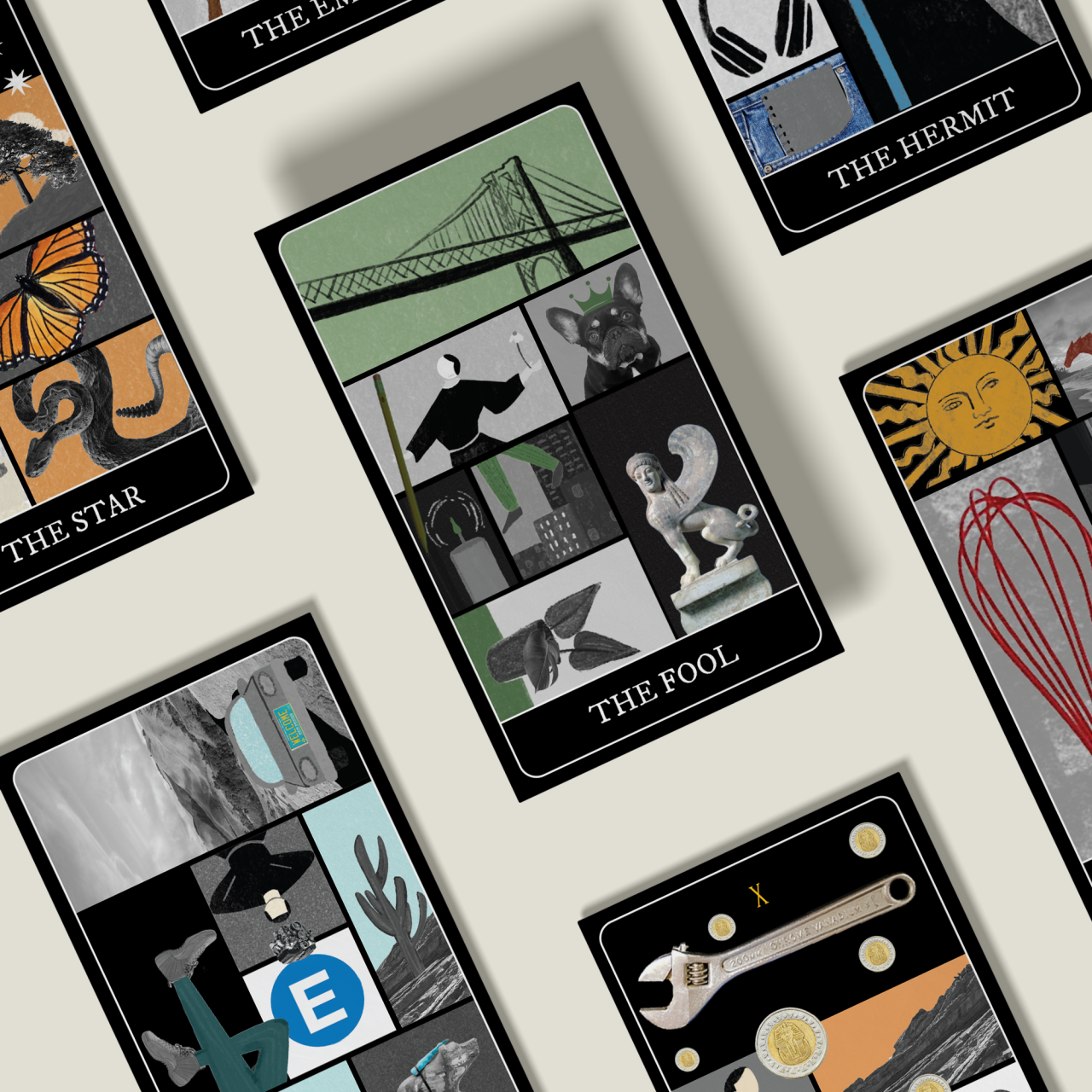
Credit: Kingsland
As an agency, Kingsland's brand has always leaned into a richer aesthetic than most design and brand studios out there. Rather than opt for a minimal "less is more" approach, Brundage has embraced art history and esoteric iconography to tell a clear story about the magic intrinsic in the branding process. "I'm very inspired by alchemy," Brundage told Creative Boom. From where he's standing, alchemists and creatives have a lot in common: in the middle ages, alchemists were seen as some hybrid of doctor and magician – in combining creative and strategic thinking, he and his team are making their own magic. He wants that sense of mystery to sing through how Kingsland talks about itself. He also says medieval imagery is "very ripe territory, visually".
When you understand Brundage's aesthetic preferences, tarot cards as business cards make absolute sense. But using cartomancy as a calling card wasn't always the plan – Kingsland grew up in the pandemic years when a physical business card was pointless. Today, with the digitisation of comms, many businesses don't bother with business cards. But as his staff started to get out and about, navigating in-person conversations with potential leads, Brundage and his team decided that having cards would be a powerful tool for conversation. Brundage said: "I think there's a novelty to it these days that might be more effective than ever. And so we began to think, let's make physical business cards. And the question was, what are they going to look like? I knew if we were going to invest, like everything that I do, it had to be very high quality, it had to be smart, and ideally, it had to be something unusual."
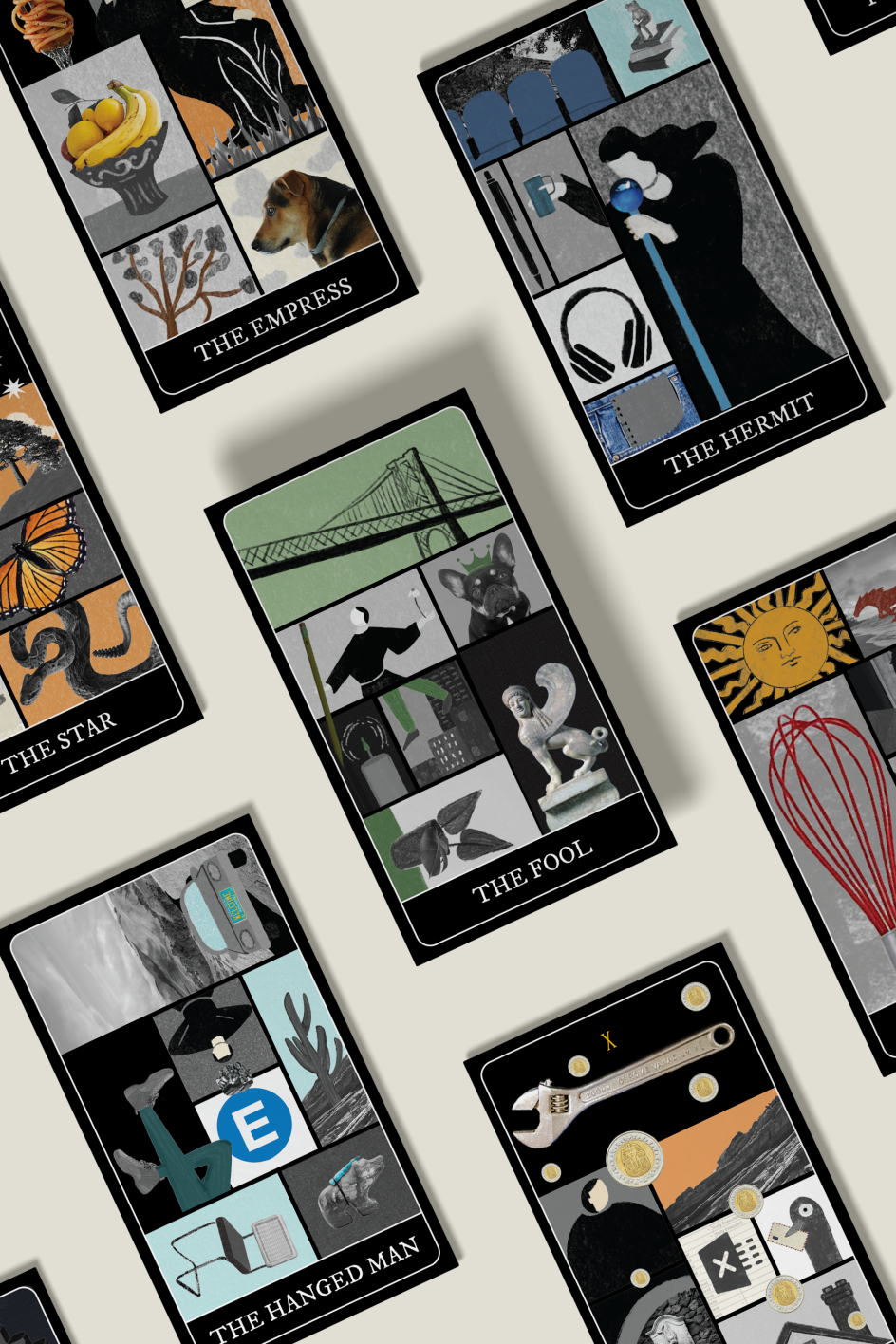
Credit: Kingsland
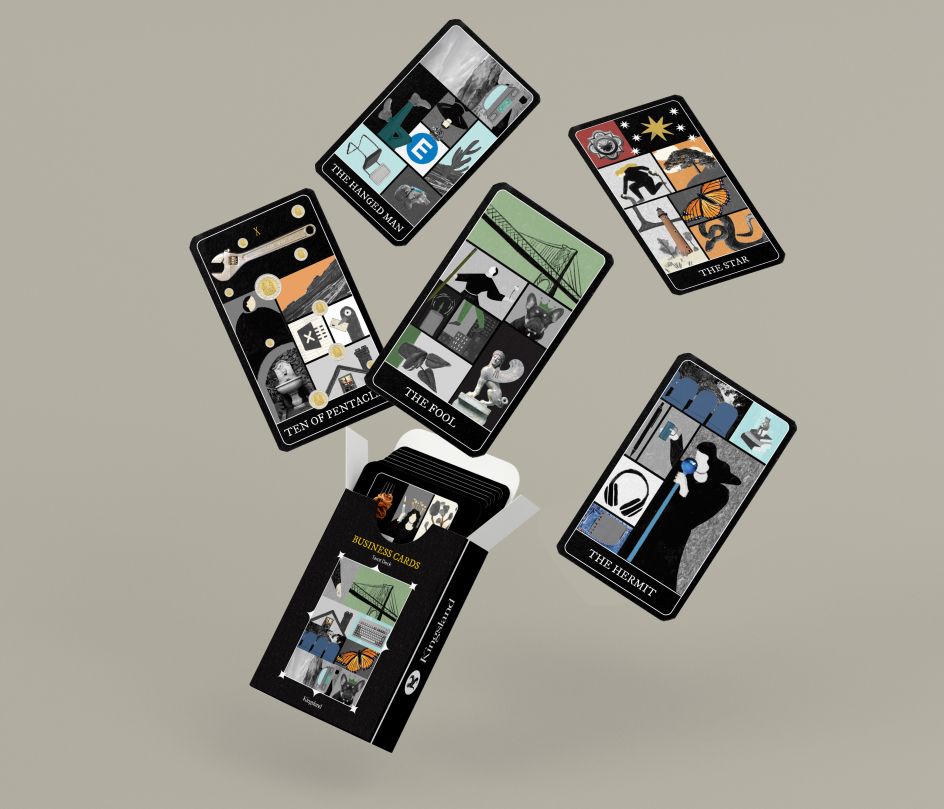
Credit: Kingsland
From there, the idea for a tactile tool that could double as a brand-enriching exercise for the agency was born. Brundage returned to the initial research he did when developing the Kingland brand. He explained: "I wanted to find some intriguing symbols we could play with and something that would allow variability. I also loved the idea of what if these business cards could be informed by the personality or the interests of those individuals on my team. It all led me to the idea of doing tarot cards."
The team was encouraged to read up further and choose a card they felt said something about them – as creatives and as people. Brundage chose The Fool. Significantly, the Fool is the first card in a tarot deck and is numbered '0'. It represents how one decision opens up every possibility the following cards offer. If that's not the perfect description of a founder, what is?
The cards were designed by Kingsland's in-house illustrator, Divyakshi Kedia, who sought to bring a more modern twist to the artwork. Alongside including the traditional archetypal imagery of the tarot in each card, Kedia incorporated visual cues that relate specifically to the individual Kingsland team member. Brundage's card features a French bulldog since he's the proud owner of one in real life. A camera takes up the left-hand corner of Creative Director Pat Dewitt's Magician card, speaking specifically to Dewitt's artistic eye.
"There is a little colour coding in the system," Brundage explains. Strategists' cards have green cues, the creative leads are yellow, the designers are red, and the writers are blue. "But our model is that everyone's expected to wear many hats, so it was more just for fun."
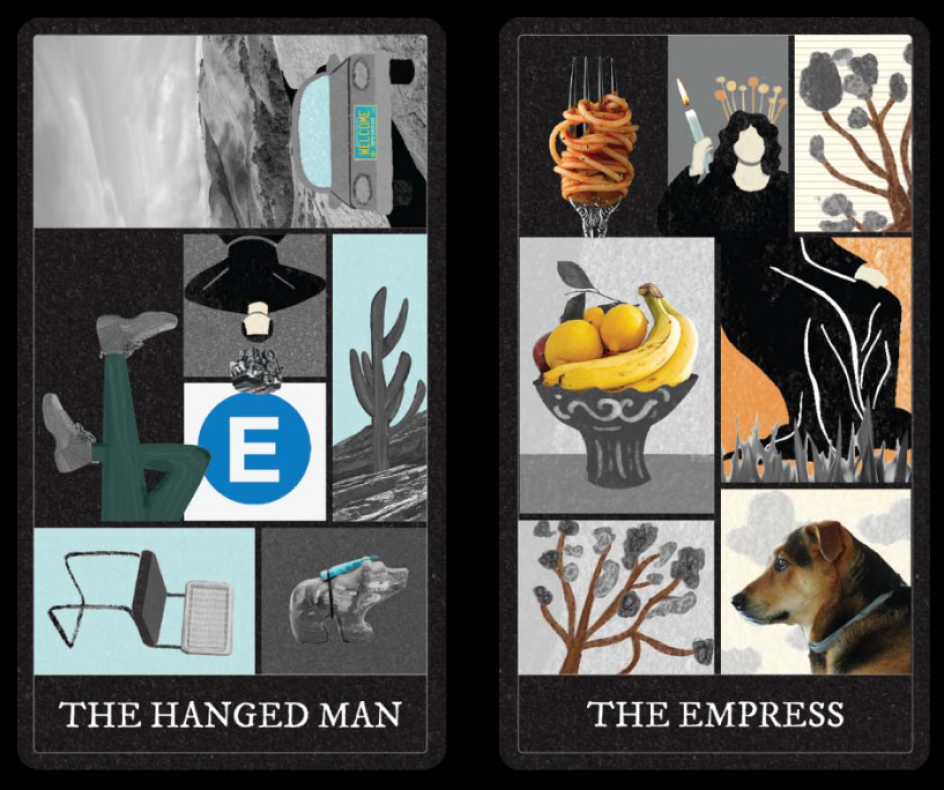
Credit: Kingsland
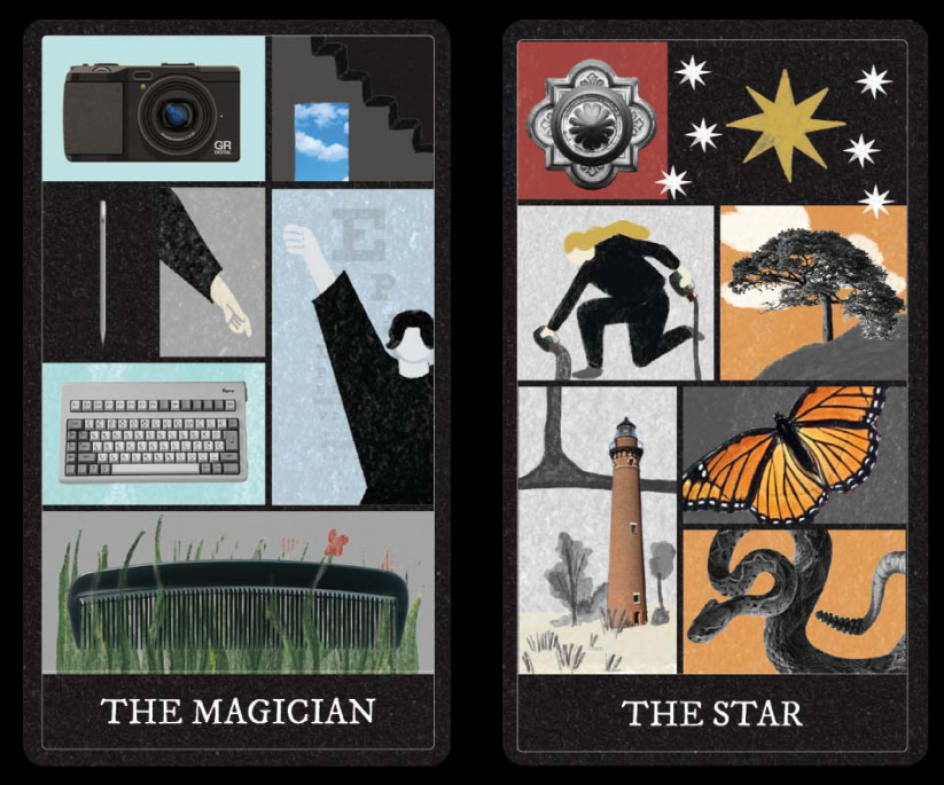
Credit: Kingsland
The tarot cards don't just give a personal view into the Kingsland team or nicely match the agency's aesthetic. They also speak more widely to Kingsland's creative approach.
"I like the idea of connecting prediction of the future to what we do," Brundage told Creative Boom. It makes sense – branding experts Brundage and his have to have their finger on the pulse of what's to come and guide their clients toward strategies that can last in the long term.
But rather than psychic ability, Brundage says good branding is all about intuition backed by expertise. Many modern tarot readers would agree with that sentiment – these days, tarot is often referred to as an "intuitive art" rather than a psychic skill, and good reading is a combination of knowing what the cards symbolise and trusting your own gut.
It all sounds much more woo-woo than it actually is. After all, it's not that uncommon for brand and marketing agencies to use idea-generating card decks with clients, and Brundage said he's a big fan of this approach. As to whether or not he'd bring tarot specifically into a client workshop, the jury's currently out. "I've thought about it," he says. "But it needs further investigation – I'd need to build a good system around it."
In the meantime, Kingsland's tarot business cards offer a charming introduction to Kingsland and to tarot as a tool – who knows what future conversations are in the cards.

















